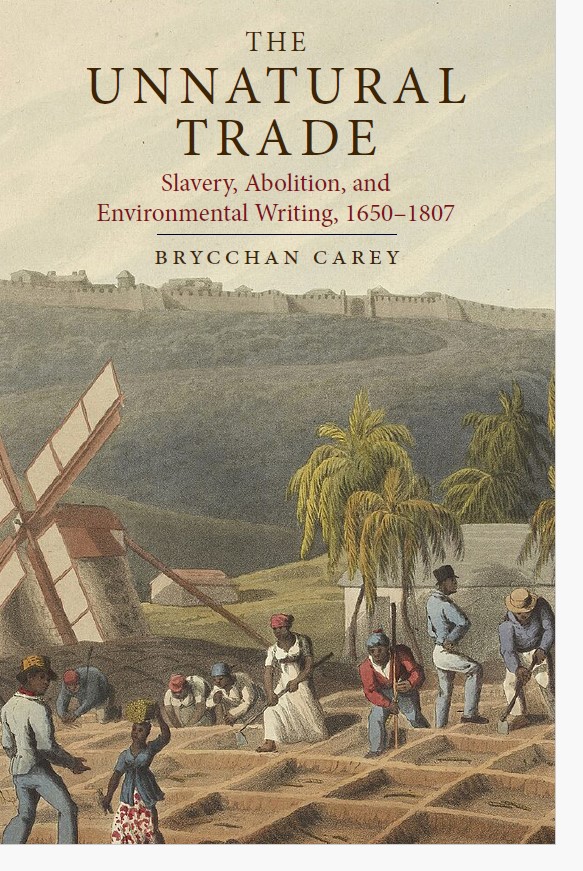The Unnatural Trade: Slavery, Abolition, and Environmental Writing, 1650-1807
Brycchan Carey

How did late eighteenth-century British abolitionists come to view the slave trade and British colonial slavery as unnatural, a "dread perversion" of nature?
Focusing on slavery in the Americas, and the Caribbean in particular, alongside travelers' accounts of West Africa, Brycchan Carey shows that before the mid-eighteenth century, natural histories were a primary source of information about slavery for British and colonial readers.
These natural histories were often ambivalent toward slavery, but they increasingly adopted a proslavery stance to accommodate the needs of planters by representing slavery as a "natural" phenomenon. From the mid-eighteenth century, abolitionists adapted the natural history form to their own writings and many naturalists became associated with the antislavery movement.
Carey draws on descriptions of slavery and the slave trade created by naturalists and other travelers with an interest in natural history, including Richard Ligon, Hans Sloane, Griffith Hughes, Samuel Martin, and James Grainger.
These environmental writings were used by abolitionists such as Anthony Benezet, James Ramsay, Thomas Clarkson, and Olaudah Equiano to build a compelling case that slavery was unnatural, a case that was popularized by abolitionist poets such as Thomas Day, Edward Rushton, Hannah More, and William Cowper. .
The Unnatural Trade will be published by Yale University Press in August 2024 in the US and October 2024 in the UK and Europe.
Hardcover Price: UK £49.00, US $65.00
ISBN: 9780300224412
> Preorder From Amazon.co.uk (UK)
> Preorder from Amazon.com (USA)
Reviews
"Bolstered by impressive primary and secondary research, Brycchan Carey argues compellingly that eighteenth-century abolitionists imitated contemporaneous naturalists to depict chattel slavery as an invasive species brought by Europeans to the Americas."
— Vincent Carretta, University of Maryland"Brycchan Carey's skillful re-examination of the primary literature of British slave trading and settlement in the Caribbean is persuasive and welcome. His forensic study forms a highly original environmental analysis both of humans and the natural world in the era of Atlantic slavery, exploration and settlement. In the process, it provides a totally new backdrop to the rise of late 18th century abolitionist sensibility."
— James Walvin, University of York